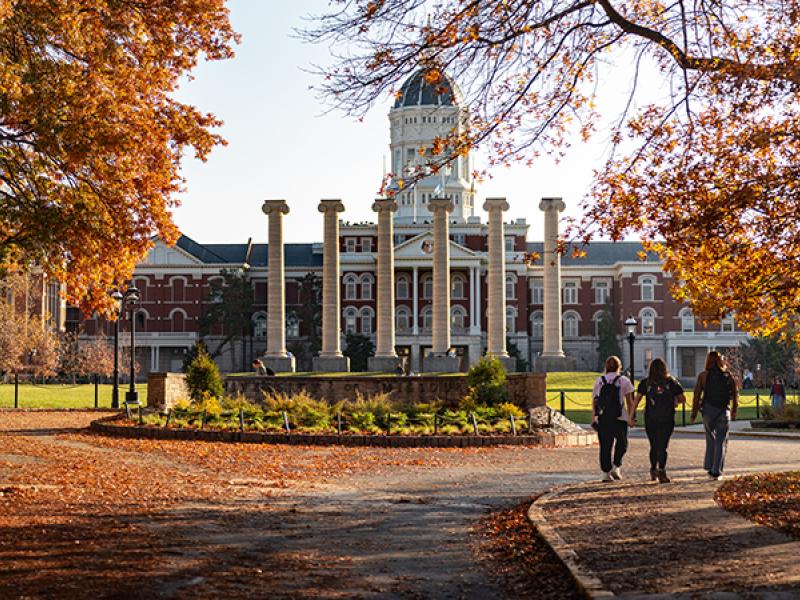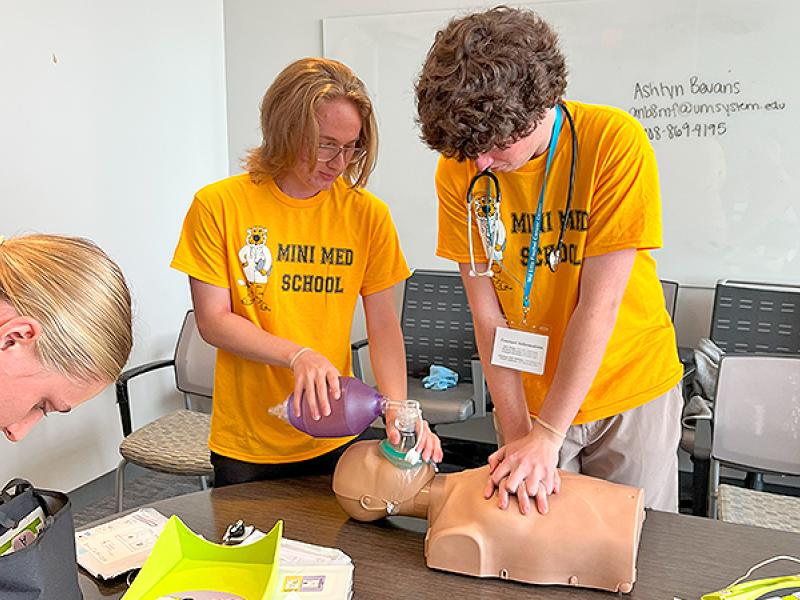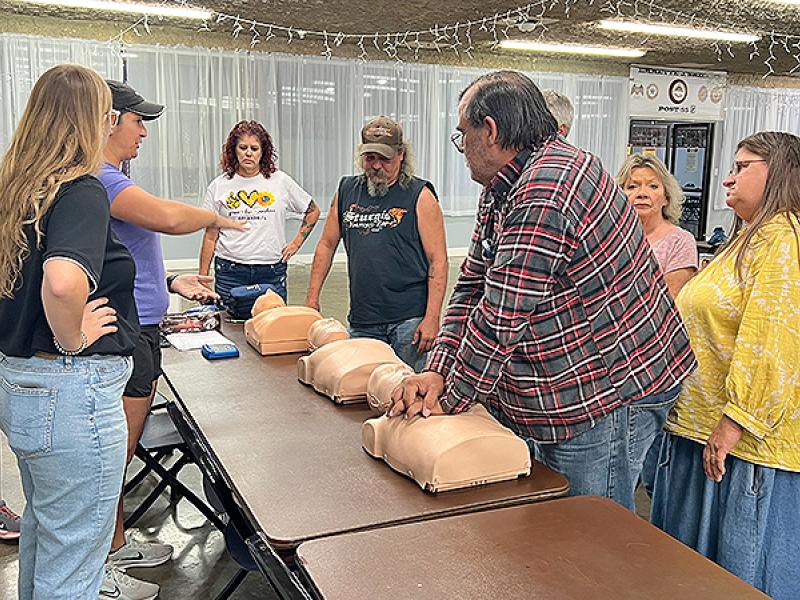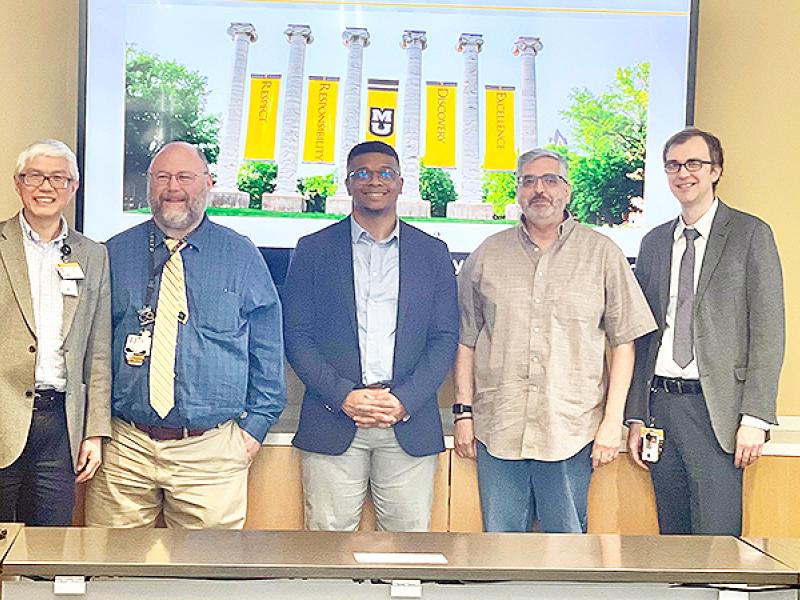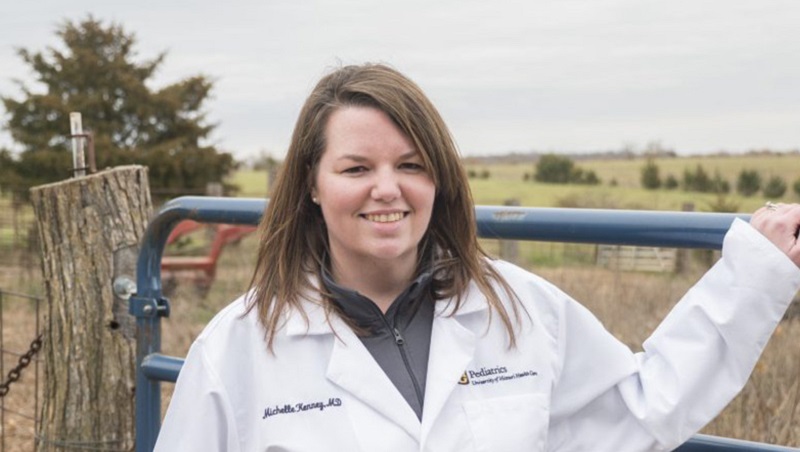
Michelle Kenney has many different skills. As a native Missourian raised on a farm north of Kirksville, Missouri, she can round up a herd of cattle and load hay to feed them. As a resident physician trained in pediatric medicine at the University of Missouri, she can check the heartbeat of children and provide care for them.
Kenney’s unique set of skills represent the accumulated experience of life on a farm, four years at the MU School of Medicine, three years of physician residency, a passion for keeping children healthy and an awareness of the rural physician shortage in Missouri and throughout the country.
“This has been an ongoing problem for years and it’s likely to get worse,” Kenney said. “I feel like everyone should have good care, and it should be available and not something that is granted only to people in urban areas. If we’re ever going to target the overall health of the country, access is huge.”
According to a 2017 report by the Missouri Department of Health and Senior Services, 99 of 114 Missouri counties don’t have enough physicians, with 86 percent of the state classified as health profession shortage areas.
Kathleen Quinn, PhD, former associate dean for rural health at the MU School of Medicine, said it has long been hard to recruit new doctors to rural America and, specifically, to rural Missouri.
“In Missouri, about 18 percent of physicians practice in rural communities but 37 percent of our population lives there,” Quinn said. “We really need more physicians in rural communities to meet the health care needs of rural Missouri.”
To address this problem, the MU School of Medicine has added a program to train doctors to provide health care in rural communities. The program gives resident physicians the option to do a one-month rotation in a rural clinic – giving them real-life experience practicing rural medicine. The rural residency program is funded by an annual $200,000 Rural Medical Services grant from the Missouri Department of Health and Senior Services.
The program plays an important role for resident physicians considering rural medicine. Kenney’s family still resides on the cattle farm a few miles north of Kirksville where she grew up. She had always dreamed of moving back to her hometown, helping her dad with the farm and practicing medicine, but she wasn’t completely sure how she was going to do that.
“A lot of us who grew up in rural communities start with the goal of going back to that community after medical school, but things change in residencies when you’re used to practicing in an academic setting,” Kenney said. “I didn’t feel like I understood exactly what it would be like to practice in a rural area until I got the chance to actually try it.”
Her experiences during the rotation in March 2017 prepared her for many of the unique challenges that come with rural medicine. That hands-on experience is what ultimately led Kenney to commit to practicing medicine near her hometown.
“One of the biggest concerns is the perception that you’re a little bit more isolated in a rural area,” Kenney said. “I discovered there are more resources for rural physicians than I thought. Also, I did enjoy the challenges of stretching my skills into other specialty areas.”
Kenney also found some unique benefits of rural practice. Rural patients were genuinely more excited to see her because they understood the scarcity of doctors in rural communities. She was also able to see more patients every day. That gave her experience diagnosing and treating the wide variety of illnesses and conditions that rural physicians handle daily.
Resident physicians in MU’s rural residency program hear rural physicians and representatives from rural healthcare systems speak about the practice of rural medicine. In addition, physicians who are committed to working in underserved communities may qualify for a loan repayment from the Missouri Department of Health and Senior Services through the Rural Medical Services grant.
Since the MU program began in 2016, four resident physicians have completed it, and all plan to work in rural areas when they graduate in May 2018.
“Of our medical students who have participated in one of the rural medical programs offered at MU since 1995, 45 percent ended up practicing in rural Missouri,” Quinn said. “Our recent graduates include Lindsey Letner, a family practitioner in Cameron, Missouri; Trevin and Fallon Mayabb, obstetricians in Sikeston, Missouri; and Dayna Jett, a family practitioner in Branson, Missouri. We want to add even more physicians to rural Missouri with this program. It gives resident physicians valuable experience and confirmation that rural medicine is what they want to do. If they train in a specific rural community, they’re more likely to go back and work there.”
After Kenney completes her residency in May 2018, she plans to return to her roots and put her medical expertise into practice at Northeast Missouri Health Council Pediatrics, a children’s health clinic in Kirksville, Missouri. Meanwhile, her husband, Martin, will be the one rounding up cattle on the family farm.


